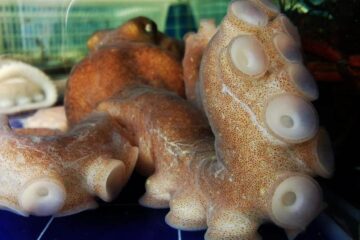Public Consulation on Genetic Testing

The Guidelines offer principles and best practices for human genetic testing by encouraging high quality laboratory practices in the collection and handling of samples and data, result reporting, education and training, and where possible, the clinical validity and utility of the tests.
The Guidelines are meant to encourage quality assurance systems for human genetic and genomic testing, guarantee the international exchange of clinical samples and access to data on rare disease testing, as well as help meet OECD member countries’ efforts to supply high quality healthcare to their citizens. Currently, quality assurance of genetic testing in most countries is regulated on a voluntary basis and introduction of international guidelines will aid harmonisation of genetic testing systems.
The OECD is seeking input from people involved in molecular genetic testing. Patients’ groups, health authorities, genetic testing laboratories and others are invited to comment before 4 September via e-mail at: sti.bioQAguidelines@oecd.org or through the site: www.oecd.org/sti/biotechnology/qualityassurance
For further information of the OECD’s work in the field of biotechnology and genetic testing, journalists are invited to contact Elettra Ronchi in the OECD’s directorate of Science, Technology and Industry by e-mail at Elettra.Ronchi@oecd.org
Media Contact
More Information:
http://www.oecd.org/sti/biotechnology/qualityassuranceAll latest news from the category: Life Sciences and Chemistry
Articles and reports from the Life Sciences and chemistry area deal with applied and basic research into modern biology, chemistry and human medicine.
Valuable information can be found on a range of life sciences fields including bacteriology, biochemistry, bionics, bioinformatics, biophysics, biotechnology, genetics, geobotany, human biology, marine biology, microbiology, molecular biology, cellular biology, zoology, bioinorganic chemistry, microchemistry and environmental chemistry.
Newest articles

Octopus inspires new suction mechanism for robots
A new robotic suction cup which can grasp rough, curved and heavy stone, has been developed by scientists at the University of Bristol. The team, based at Bristol Robotics Laboratory,…

Peptides on Interstellar Ice
A research team led by Dr Serge Krasnokutski from the Astrophysics Laboratory at the Max Planck Institute for Astronomy at the University of Jena had already demonstrated that simple peptides…

A new look at the consequences of light pollution
GAME 2024 begins its experiments in eight countries. Can artificial light at night harm marine algae and impair their important functions for coastal ecosystems? This year’s project of the training…





















